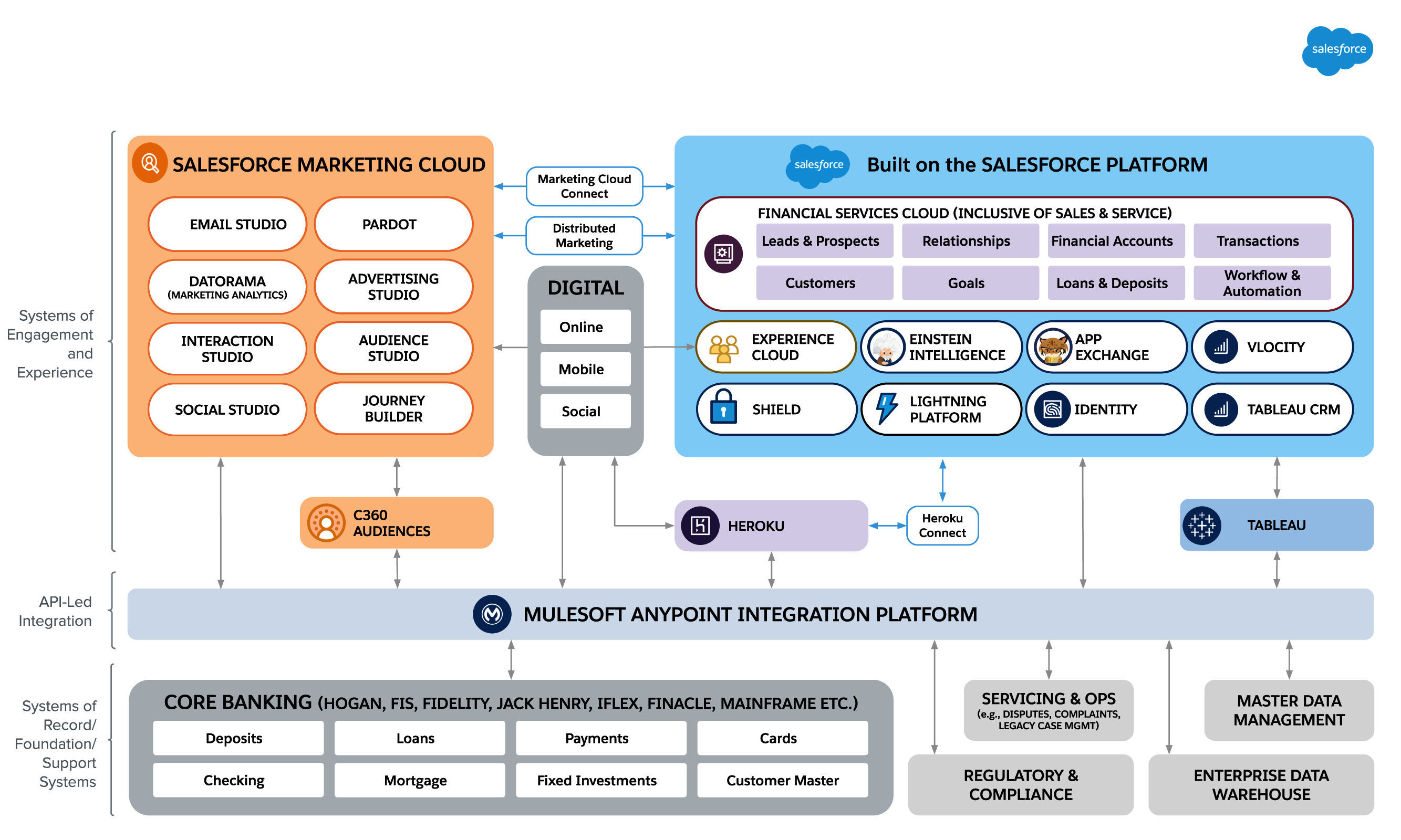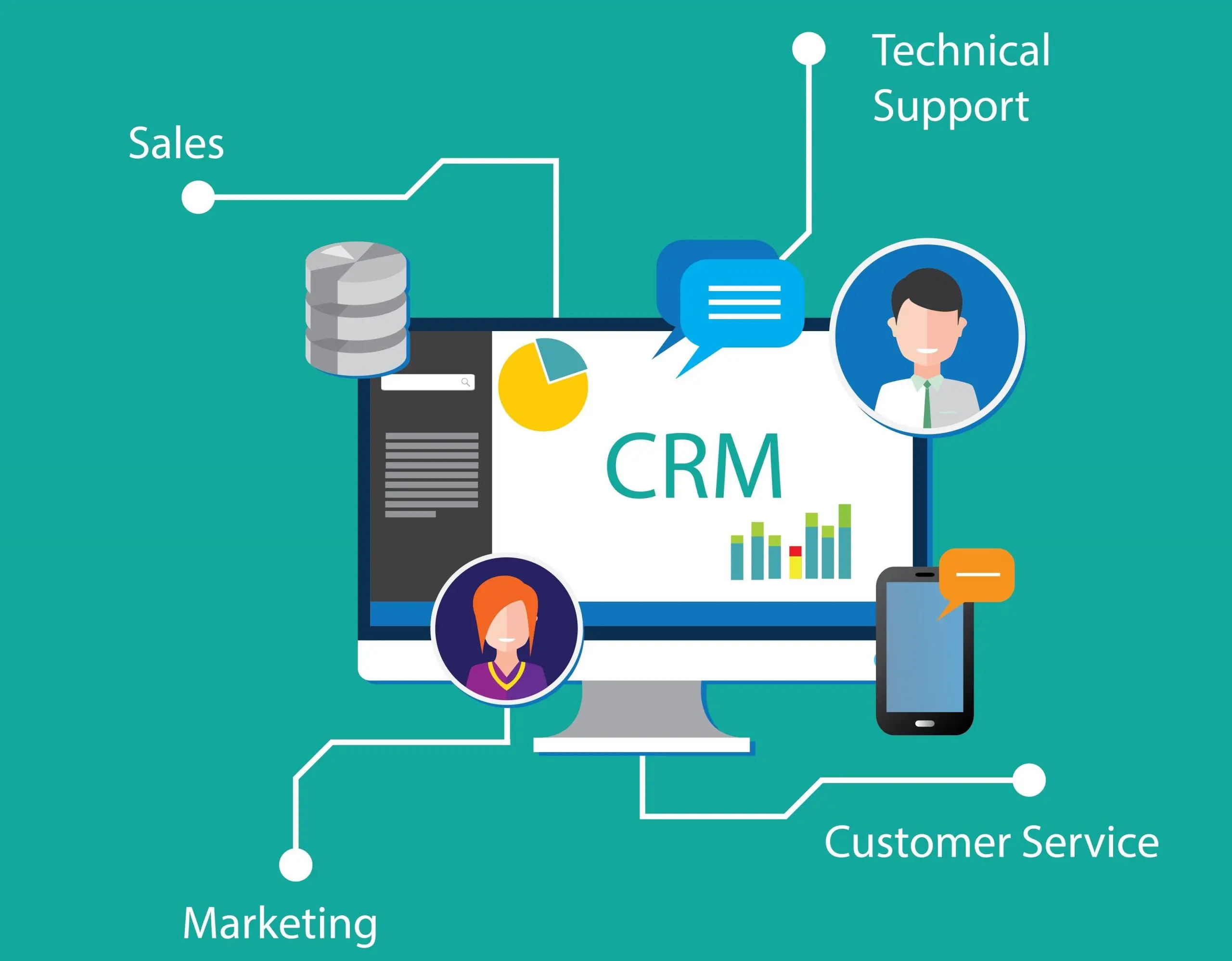Delving into the realm of CRM software solutions, we embark on a journey to explore how businesses can harness the power of technology to transform their customer relationships. CRM, an acronym for Customer Relationship Management, encompasses a suite of software applications designed to centralize, manage, and analyze customer interactions across multiple channels.
With its comprehensive capabilities, CRM software empowers businesses to gain a holistic view of their customers, enabling them to tailor personalized experiences, enhance sales performance, and streamline operations. By leveraging the latest advancements in data management, customer segmentation, and marketing automation, businesses can unlock the full potential of their CRM software, driving growth and fostering lasting customer loyalty.
CRM Software Definition and Functionality: Crm Software Solution

Customer Relationship Management (CRM) software is a comprehensive solution designed to manage and enhance interactions with customers across various channels. It provides a centralized platform for businesses to manage customer data, track interactions, automate processes, and gain valuable insights to improve customer experiences and drive growth.
Key functions of CRM software include:
- Centralized customer data management
- Contact management and segmentation
- Sales pipeline management
- Marketing automation
- Customer support and ticketing
- Analytics and reporting
Implementing a CRM system offers numerous benefits for businesses, including:
- Improved customer satisfaction and loyalty
- Increased sales conversion rates
- Enhanced productivity and efficiency
- Better decision-making based on data
- Reduced costs and improved ROI
Types of CRM Software Solutions
CRM software solutions come in various types, each tailored to specific business needs and industries. These types offer a range of features and capabilities designed to enhance customer relationships and streamline business processes.
The main types of CRM software solutions include:
Operational CRM
Operational CRM focuses on automating and streamlining day-to-day customer interactions. It provides tools for managing sales, marketing, and customer service operations. Key features include:
- Sales force automation (SFA)
- Marketing automation
- Customer service and support
Analytical CRM
Analytical CRM analyzes customer data to provide insights into customer behavior, preferences, and trends. It helps businesses understand their customers better and make data-driven decisions. Key features include:
- Data warehousing and data mining
- Customer segmentation and profiling
- Predictive analytics
Collaborative CRM
Collaborative CRM facilitates communication and collaboration between different departments and teams within an organization. It provides a centralized platform for sharing customer information and coordinating efforts. Key features include:
- Contact management
- Activity tracking
- Document sharing
Strategic CRM
Strategic CRM aligns CRM initiatives with the overall business strategy. It helps businesses develop long-term customer relationships and drive growth. Key features include:
- Customer lifetime value (CLTV) analysis
- Customer churn prediction
- Market analysis and forecasting
Key Features of CRM Software

CRM software solutions provide a range of features that enhance customer relationship management. When selecting a CRM software, it’s crucial to identify the essential features that align with your specific business needs. Some key features to consider include:
Data Management
Effective data management is the foundation of any CRM software. It enables businesses to capture, store, and manage customer data from various sources, including websites, email campaigns, and social media. This data can include customer contact information, purchase history, preferences, and interactions with the company.
Customer Segmentation, Crm software solution
Customer segmentation allows businesses to divide their customer base into distinct groups based on shared characteristics, such as demographics, purchase behavior, or industry. This enables targeted marketing campaigns and personalized customer experiences. By understanding the unique needs and preferences of each segment, businesses can tailor their communication and offerings accordingly.
Marketing Automation
Marketing automation is a feature that streamlines marketing tasks and improves efficiency. It allows businesses to automate repetitive tasks such as email marketing, social media posting, and lead generation. This frees up marketing teams to focus on more strategic initiatives and enhances campaign effectiveness.
Benefits of CRM Software
CRM software solutions offer a wide range of advantages for businesses of all sizes. By centralizing customer data and streamlining communication, CRM can significantly enhance customer relationships, boost sales, and improve operational efficiency.
Improved Customer Relationships
- CRM software provides a comprehensive view of customer interactions, allowing businesses to understand customer needs and preferences.
- It enables personalized communication and targeted marketing campaigns, fostering stronger relationships with customers.
- Automated workflows and reminders ensure timely follow-ups, improving customer satisfaction and loyalty.
Increased Sales
- CRM software helps businesses identify and qualify leads, prioritize sales opportunities, and track progress throughout the sales pipeline.
- It provides real-time insights into customer behavior, enabling sales teams to tailor their approach and close deals faster.
- Automated sales processes and integrations with other business systems streamline the sales cycle, increasing productivity and revenue.
Enhanced Operational Efficiency
- CRM software eliminates manual data entry and automates repetitive tasks, freeing up time for more strategic activities.
- It provides a central repository for all customer-related information, improving collaboration and reducing the risk of errors.
- CRM can integrate with other business systems, such as accounting and marketing automation, creating a seamless workflow and eliminating data silos.
Implementation and Integration of CRM Software
To ensure a successful implementation of CRM software, a well-structured plan and meticulous execution are essential. Key considerations include data migration, user training, and ongoing support.
Data Migration
Data migration involves transferring existing customer data from various sources, such as spreadsheets, legacy systems, and databases, into the new CRM software. Accurate and comprehensive data migration is crucial for a seamless transition and maintaining data integrity.
User Training
User training empowers employees to utilize the CRM software effectively. Comprehensive training should cover all aspects of the software, including data entry, reporting, and analytics. Training can be conducted through workshops, online tutorials, or on-the-job guidance.
Ongoing Support
Ongoing support ensures that the CRM software continues to meet evolving business needs and technical advancements. This includes regular software updates, technical assistance, and access to support resources such as documentation, forums, and dedicated support teams.
CRM Software Vendors and Pricing

The CRM software market is highly competitive, with numerous vendors offering a wide range of solutions. Choosing the right vendor is crucial for maximizing the benefits of CRM implementation. Here’s an overview of the leading CRM software vendors and their pricing models:
Leading CRM Software Vendors:
- Salesforce
- Microsoft Dynamics 365
- SAP Hybris Cloud for Customer Engagement
- Oracle Siebel CRM
- Zoho CRM
Pricing Models:
- Subscription-based: Vendors charge a monthly or annual fee based on the number of users, features, and storage requirements.
- Per-user pricing: Vendors charge a fixed fee per user, regardless of usage.
- Tiered pricing: Vendors offer different tiers of service with varying features and pricing.
Comparison of Pricing and Features
The pricing and features offered by different vendors vary significantly. Salesforce, for example, offers a wide range of pricing options, including a free tier for small businesses. Microsoft Dynamics 365 has a more enterprise-focused pricing model, with options for on-premise and cloud deployment.
SAP Hybris Cloud for Customer Engagement offers a comprehensive suite of features, including e-commerce integration, but comes with a higher price tag. Oracle Siebel CRM is a legacy CRM solution with a complex pricing structure. Zoho CRM offers affordable pricing options, making it a popular choice for small businesses and startups.
Case Studies and Success Stories
Numerous businesses have experienced significant improvements after implementing CRM software solutions. These success stories serve as valuable insights into the challenges companies faced and the tangible benefits they achieved.
One notable example is the case of a multinational manufacturing company. They faced challenges in managing customer relationships across multiple departments and geographies. After implementing a CRM solution, they streamlined their processes, improved communication, and enhanced customer satisfaction. As a result, they witnessed a significant increase in sales and customer retention.
Improved Customer Experience
- Enhanced customer interactions and personalized experiences
- Faster and more efficient issue resolution
- Increased customer satisfaction and loyalty
Streamlined Sales Process
- Improved lead management and tracking
- Automated sales workflows and pipelines
- Increased sales productivity and revenue
Enhanced Marketing Effectiveness
- Targeted and personalized marketing campaigns
- Improved campaign performance tracking and optimization
- Increased brand awareness and lead generation
Improved Collaboration and Communication
- Centralized platform for team collaboration
- Improved communication and coordination among departments
- Increased productivity and efficiency
Trends and Future of CRM Software

The CRM software industry is constantly evolving, with new trends and advancements emerging all the time. Some of the most important trends to watch for in the future of CRM include:
- Increased use of artificial intelligence (AI) and machine learning (ML):AI and ML can be used to automate many CRM tasks, such as lead scoring, customer segmentation, and churn prediction. This can free up CRM users to focus on more strategic tasks, such as building relationships with customers and closing deals.
- Greater emphasis on customer experience (CX):Customers are increasingly expecting businesses to provide them with a seamless and personalized experience across all channels. CRM software can help businesses to track customer interactions, identify customer needs, and resolve customer issues quickly and efficiently.
- Integration with other business systems:CRM software is becoming increasingly integrated with other business systems, such as ERP, marketing automation, and e-commerce.This integration can help businesses to get a complete view of their customers and to automate their business processes.
- Adoption of cloud-based CRM:Cloud-based CRM software is becoming increasingly popular, as it offers businesses a number of advantages, such as scalability, flexibility, and cost-effectiveness.
These trends are expected to have a major impact on the future of CRM. Businesses that are able to adopt these trends will be well-positioned to succeed in the years to come.
Impact of CRM on Businesses
The future of CRM is bright. CRM software is becoming increasingly essential for businesses of all sizes. By adopting CRM software, businesses can improve their customer relationships, increase their sales, and reduce their costs.CRM software is a powerful tool that can help businesses to achieve their goals.
By understanding the trends and future of CRM, businesses can make informed decisions about how to use CRM software to improve their business.
Last Point
In conclusion, CRM software solutions have emerged as indispensable tools for businesses seeking to elevate their customer engagement strategies. By embracing the power of CRM, businesses can gain a competitive edge, foster stronger customer relationships, and unlock new avenues for growth.
As technology continues to evolve, CRM software will undoubtedly play an increasingly pivotal role in shaping the future of customer-centric businesses.
Top FAQs
What are the key benefits of implementing a CRM software solution?
CRM software offers numerous benefits, including improved customer satisfaction, increased sales productivity, enhanced operational efficiency, and better decision-making.
How can CRM software help businesses improve customer relationships?
CRM software provides a centralized platform for managing customer interactions, allowing businesses to track customer preferences, resolve issues promptly, and deliver personalized experiences.
What are the essential features to look for when selecting a CRM software solution?
Key features to consider include data management capabilities, customer segmentation tools, marketing automation functionality, and integration options with other business systems.

